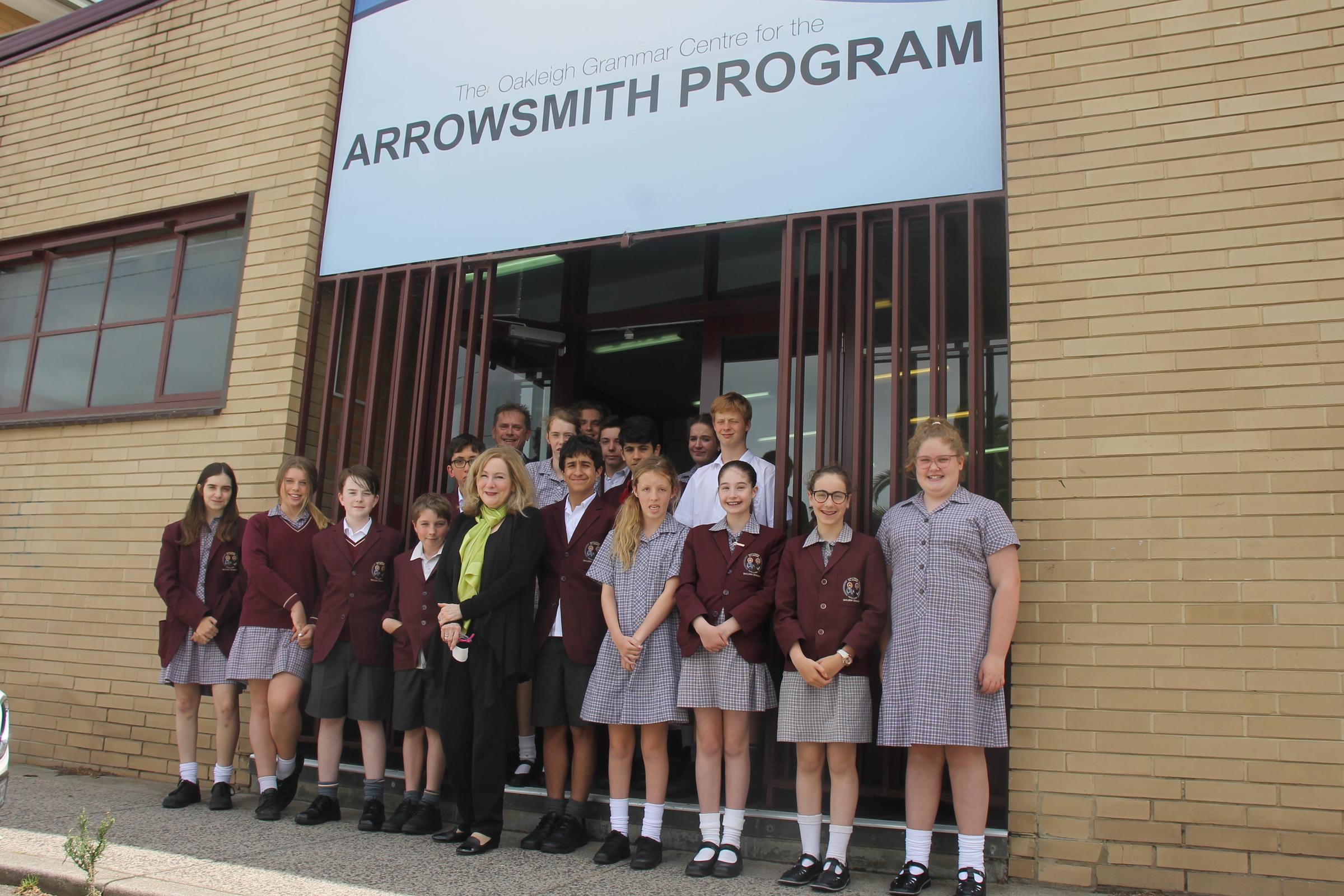The Arrowsmith Program

WAYNE STAGG
Head of the Arrowsmith Program
As Victoria’s fifth lockdown took its toll, educators looked for novel ways to engage their students, both academically and psychologically. It goes without saying that COVID-19 has impacted students, parents and educators.
How do we keep school going in a time of such uncertainty?
This dilemma is real for any student, but more so for those with additional learning needs. Students with additional needs in mainstream classrooms, especially those with diagnosed disabilities, were accustomed to receiving support from their teacher, and often from a teaching assistant or an educational support officer.
During the pandemic, this form of support was significantly reduced, as many people began to work from home, and there were competing demands on time. The learning programs of students with disabilities had to be supervised and managed by their parents, often with no background information or preparation.
What could parents – and, indeed, teachers – do during this time to facilitate learning?
Perhaps the most essential aspect to consider was the students’ well-being and psychological stability. Without this, it’s unlikely any form of learning would have followed, or would have had any positive impact on student outcomes.
A huge thankyou to the management, teachers and learning support staff at Oakleigh Grammar and all the parents who once again juggled family, life and work commitments to support students and keep the education and well-being of students a priority.
A recent study by academics found that an important element of schooling during the government-imposed lockdowns in Victoria was the need to create communities even in the previously alien online classroom. Developing accessible platforms where students could meet using the available technology became vital in fostering and consolidating social interaction.
Within these communal settings, it was important to acknowledge and celebrate even small milestones so that students felt motivated and aspired to do better.
Without the social support of their peers, many would have experienced disconnection from their school community, resulting in reduced effort and limited output. By bonding students through the involvement of parents and other personalised learning support personnel, classrooms became vibrant online spaces.
Not every day was glamorous, and there were evident challenges. However, the key was to continue nurturing by forging these supportive networks. Education support staff were used creatively to facilitate one-on-one teaching and focused conversations with individual students. Oakleigh Grammar created communities in mainstream and the Arrowsmith Program where students could feel connected.
In particular, I would like to thank the staff and parents involved in the Arrowsmith program. Their commitment and dedication to supporting students and their children is outstanding. I hope you feel connected.
Executive Function & Self-Regulation
Executive function and self-regulation skills are the mental processes that enable us to plan, focus attention, remember instructions, and juggle multiple tasks successfully. Just as an air traffic control system at a busy airport, safely manages the arrivals and departures of many aircraft on multiple runways. The brain needs this skill set to filter distractions, prioritize tasks, set and achieve goals, and control impulses.
When children have opportunities to develop executive function and self-regulation skills, individuals and society experience lifelong benefits. These skills are crucial for learning and development. They also enable positive behaviour and allow us to make healthy choices for ourselves and our families.
Executive function and self-regulation skills depend on three types of brain functions: working memory, mental flexibility, and self-control. These functions are highly interrelated, and the successful application of executive function skills requires them to operate in coordination with each other.
Working memory governs our ability to retain and manipulate distinct pieces of information over short periods.
· Mental flexibility helps us to sustain or shift attention in response to different demands or to apply different rules in different settings.
· Self-control enables us to set priorities and resist impulsive actions or responses.
Children aren’t born with these skills—they are born with the potential to develop them. Some children may need more support than others to develop these skills. In other situations, if children do not get what they need from their relationships with adults and the conditions in their environments—or (worse) if those influences are sources of toxic stress—their skill development can be seriously delayed or impaired. Adverse environments resulting from neglect, abuse, and/or violence may expose children to toxic stress, which can disrupt the development of the brain.
Providing the support that children need to build these skills at home, in early care and education programs, and in other settings they experience regularly is one of society’s most important responsibilities. Growth-promoting environments provide children with “scaffolding” that helps them practice necessary skills before they must perform them alone. Adults can facilitate the development of a child’s executive function skills by establishing routines, modelling social behaviour, and creating and maintaining supportive, reliable relationships. It is also important for children to exercise their developing skills through activities that foster creative play and social connection, teach them how to cope with stress, involve vigorous exercise, and over time, provide opportunities for directing their actions with decreasing adult supervision.

